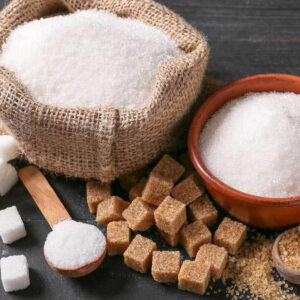Learning about beet sugar vs cane sugar can help individuals decide which suits their needs better.
Learning about beet sugar vs cane sugar can help individuals decide which suits their needs better.
Blog Article
Checking Out the Differences in operation and Advantages Between Beet Sugar Vs Cane Sugar
In the cooking globe, the choice between beet sugar and cane sugar is not simply concerning sweet taste however involves a nuanced consideration of taste, application, and impact. While both sugars originate from various plants, each undergoes one-of-a-kind production processes that subtly affect their attributes and suitability for numerous recipes. As cooks and consumers progressively focus on both the environmental and flavor accounts of their components, understanding these distinctions becomes essential. This exploration uses understanding right into just how each sugar type can best improve culinary productions.
Origins and Production Procedures of Beet and Cane Sugar

Walking stick sugar, on the various other hand, originates from the sugarcane plant, an exotic yard indigenous to Southeast Asia and now grown in tropical areas worldwide. The manufacturing of cane sugar begins with the harvesting of cane stalks, which are squashed to release the juice. This juice is then steamed to concentrate it, after which it is rotated in centrifuges to create raw sugar crystals. These crystals are more fine-tuned to produce the white sugar typically available in shops.

Nutritional Material and Health Considerations

When contrasting the nutritional material of beet sugar and cane sugar, it ends up being obvious that both types essentially supply the same caloric values, with around 16 calories per tsp and no significant nutrient diversity. Each is composed almost entirely of sucrose, which is a simple carb that supplies fast power however does not have vitamins, minerals, or fiber. This resemblance reaches their impact on health and wellness, particularly worrying blood sugar level levels. Both sugars, when consumed in excess, can add to elevated blood sugar degrees, a threat factor for diabetes mellitus and other metabolic conditions. Extreme consumption can lead to weight gain and dental troubles, as both sugars are just as cariogenic, check here promoting tooth decay. From a wellness point of view, moderating intake of any type of kind of sugar, whether from beet or cane, is advisable to avoid these possible adverse impacts on well-being. Thus, neither holds an unique benefit over the other in regards to wellness advantages.
Taste Profiles and Culinary Applications
Despite their similar chemical frameworks, beet sugar and cane sugar vary discreetly in flavor, which can affect their use in various culinary contexts. Walking cane sugar typically brings a tip of molasses, even in its refined kind, offering a cozy, caramel-like undertone that boosts baked items, coffee, and chocolate-based recipes. On the other hand, beet sugar is characterized by its highly fine-tuned, neutral taste, making it a functional sugar that does not alter the taste accounts of dishes.
Ecological Effect and Sustainability
While both beet and cane sugars are derived from plants, their environmental effects vary dramatically due to the unique methods of you could check here farming and handling required for each. Sugar beet growing usually involves comprehensive automation, which can increase fossil gas intake and carbon exhausts.
Moreover, the handling of sugarcane frequently creates a considerable amount of waste, consisting of bagasse, which, although functional as biofuel, often contributes to air contamination if burned inefficiently. Sugar beet handling makes use of even more of the raw materials, leading to less waste. Both industries face challenges in minimizing their environmental footprints, but ongoing innovations in agricultural methods and waste management are intending to enhance sustainability.
Economic Factors Affecting the Sugar Industry
The economic characteristics of the sugar market are significantly affected by international market needs and profession plans. Elements such as tolls, aids, and global trade contracts play important functions fit the affordable landscape. In regions where sugarcane or sugar beet production is subsidized, producers may have a monetary advantage that allows them to provide reduced costs on the global market. This can create disparities in success and market access for this article manufacturers in countries without such aids.
In addition, variations in international demand for sugar, affected by dietary patterns and commercial use in foodstuff, straight influence costs and manufacturing degrees. beet sugar vs cane sugar. Climate condition also play a critical role, as they can substantially affect crop yields and, subsequently, the supply chain. This variability introduces a degree of financial unpredictability that can bring about investment volatility in sugar manufacturing sectors, affecting decisions from growing to market strategy
Final Thought
In final thought, both beet and cane sugar have special top qualities that suit different culinary needs. While cane sugar imparts a rich taste ideal for enhancing baked goods, beet sugar's neutrality is perfect for lighter recipes.
Report this page